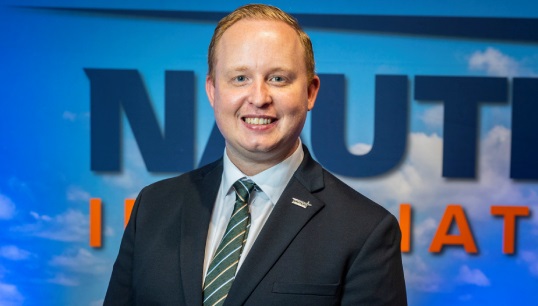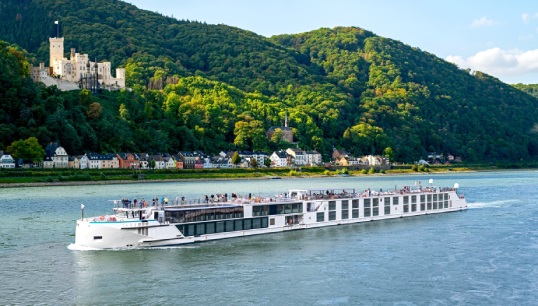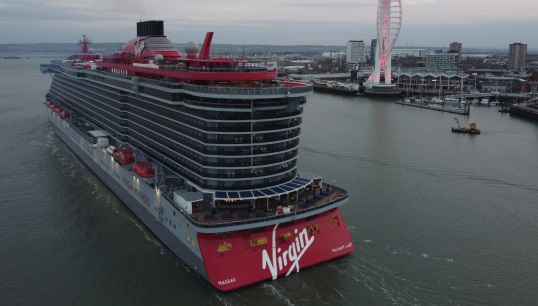- Topics
- Campaigning
- Careers
- Colleges
- Community
- Education and training
- Environment
- Equality
- Federation
- General secretary message
- Government
- Health and safety
- History
- Industrial
- International
- Law
- Members at work
- Nautilus news
- Nautilus partnerships
- Netherlands
- Open days
- Opinion
- Organising
- Podcasts from Nautilus
- Sponsored content
- Switzerland
- Technology
- Ukraine
- United Kingdom
- Welfare

As well as having collective bargaining agreements with individual cruise operators, Nautilus acts on the international stage to improve the working lives of all crew in the sector. Sarah Robinson explores how it's done
International committees and working groups aren't the most glamorous part of trade union activity, but they can have a very important effect on your day-to-day work.
Take the cruise industry. Most cruise ships are flag of convenience (FoC) vessels, so over the years it has been vital for unions to cooperate internationally and agree global minimum standards on pay and conditions.
The FoC standards for all merchant shipping are set by the International Transport Workers' Federation (ITF), of which Nautilus is a highly active affiliate. The standards are laid out in a document called the ITF Mexico City Policy, which has a special section about cruise ships known as the Miami Guidelines Policy.
Miami Guidelines
Why the special section? The Guidelines explain as follows: 'The cruise industry has developed a unique operational system which substantially differs from other maritime transport systems. These guidelines reflect the distinctive nature of the cruise industry and set out the instruments for the ITF affiliates signing acceptable ITF cruise agreements.'

This 'unique operational system' means that unions have to work even harder than in other sectors to find out where the ownership and control of the companies, operators and owners really lie, explains Nautilus head of international relations Danny McGowan. 'We're looking for the country of what we call "beneficial ownership", because that's where we need to be carrying out union negotiations.'
ITF Cruise Ship Task Force
Mr McGowan represents Nautilus on the ITF Cruise Ship Task Force, which provides a forum for unions to work together on ensuring the Miami Guidelines are followed in crew pay and conditions agreements around the world.
The task force is structured so that there is a balance of union representatives from the main beneficial ownership countries and the main labour supplying countries. At present, the beneficial ownership countries represented are Italy, Germany, Norway, the UK and the USA, and the labour supplying countries are Croatia, India, Indonesia, the Philippines and Ukraine.


So what happens at task force meetings? 'It's a place where we can discuss which national union should be the main negotiator with a company – which isn't always easy,' says Mr McGowan. 'But our priority at the moment is to review the Miami Guidelines to make sure they are working as well as they can for our members.'
Tackling issues that matter to members
Environmental, social and governance (ESG) factors are a hot topic, with the task force looking particularly at the 'social' side to make sure all seafarers are entitled to collective bargaining and consultation. The thorny matter of ownership structure also comes into the group's ESG discussions.
Another issue being explored is how cruise ships are affected by cabotage laws (rules governing whether a vessel operating in national waters has to be crewed by seafarers from that country).
In addition, there is the perennial challenge of tips and service charges for cruise crew – looking at how these affect the 'basic wage' figures used to calculate sick pay and other benefits.
These issues are likely to be familiar to Nautilus members working in the cruise sector, because the principles of the Miami Guidelines underpin all the Union's own cruise collective bargaining agreements, whether in the UK, Netherlands or Switzerland.
'Of course, at Nautilus we seek to go beyond the international minimum standards for our members,' says Mr McGowan, 'but the Miami Guidelines are a useful starting point in negotiations, and it's important to be at the international table to make sure there's a level playing field. If we all agree at the task force to stick to the Miami Guidelines, that helps to stop problems arising.'
- The next meeting of the ITF Cruise Ship Task Force is set to take place in September 2023. If you have any questions or ideas about the group, please contact Danny McGowan at dmcgowan@nautilusint.org
Tags
